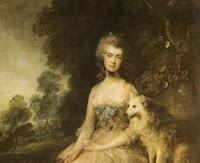it’s all come down to this: a retrospective (1999–2024) [the publisher tells us] is the defining collection from Paul Robert Mullen, brought to life by The Broken Spine with the expert editorial touch of Alan Parry. This anthology gathers over two decades of Mullen’s poetry, offering a deeply personal yet universal meditation on identity, memory, and the passage of time.
I provided an introduction to this volume.
Mullen’s sparse, emotionally charged style has been celebrated for its honesty and craft, with poems that weave through themes of separation, reflection, and rediscovery. [The publisher continues.] The collection spans his earliest work, such as Issues, Tissues & the Senseless Comic, to newer, unreleased writings in rags of light. With a voice that remains unflinchingly authentic, Mullen captures moments of longing, heartbreak, and resolution that will resonate with readers of contemporary poetry.
it’s all come down to this may be purchased it here:
https://thebrokenspine.co.uk/product/itsallcomedowntothismullen/
While I was musing on the introduction, or rather about how to write it, I came upon an interesting distinction between 'song' and 'story' by the German poet Lutz Seiler, and I wrote about the quotation here: Pages: On a passage of Lutz Seiler and a lift from Billy Mills. It led me down certain paths, away from Paul's book. Later, I integrated this quotation into my introduction to to it's all come down to this, which begins with these words:
I find the contemporary German
lyric poet Lutz Seiler puts the matter better than I could: ‘“Everyone has only
one song,” said the writer Paul Bowles in one of his last interviews. (He was
also a musician.) You recognise the song by its sound. The sound forms in the
instrument we ourselves have become over time. Before every poem comes the story
we have lived. The poem catches the sound of it. Rather than narrating the
story, it narrates its sound.’ This seems an apt way of talking about the poems
of Paul Robert Mullen, where what he calls ‘a lifetime between two covers’ is
transmuted into a song, a song that is intensely personal, though not
necessarily flagrantly autobiographical, or where autobiography has become song,
a distant echo of fact. Mullen no longer tells the story: he offers us that
condensed sound, that song, that story of the sound of the poem. That is its
artifice, of course, which I shall be examining below. However, it is worth
dwelling on the musical analogy. Like Seiler, commenting on Bowles, I can say
‘Mullen is also a musician,’ one who I have seen perform (and I possess his entertaining
CD Alchemy in the Garden). Although I will pursue the metaphor of ‘song’
in relation to Mullen – he writes much of music as part of that story of
his life – it is important that he never confuses a song lyric for a poem (or
vice versa). His songs are another story, and music is only part – an important
part, as I shall show – of the story of his verse.
It's a distinction that carries on into the poems (and a little prose) that I examine in more detail in my response to Paul’s considerable collection of his work. And I conclude: ‘These are the ‘writings’ of the subtitle: ‘selected poems and writings 1999-2024’, a title and dating that reminds us that that story that Mullen has lived is a long one. The sounds that he has made during, and from, that life, are often exquisite and always truly affective.’
But to read the rest of the introduction and (more importantly!) the rest of the book, you'll have to buy it here: https://thebrokenspine.co.uk/product/itsallcomedowntothismullen/












